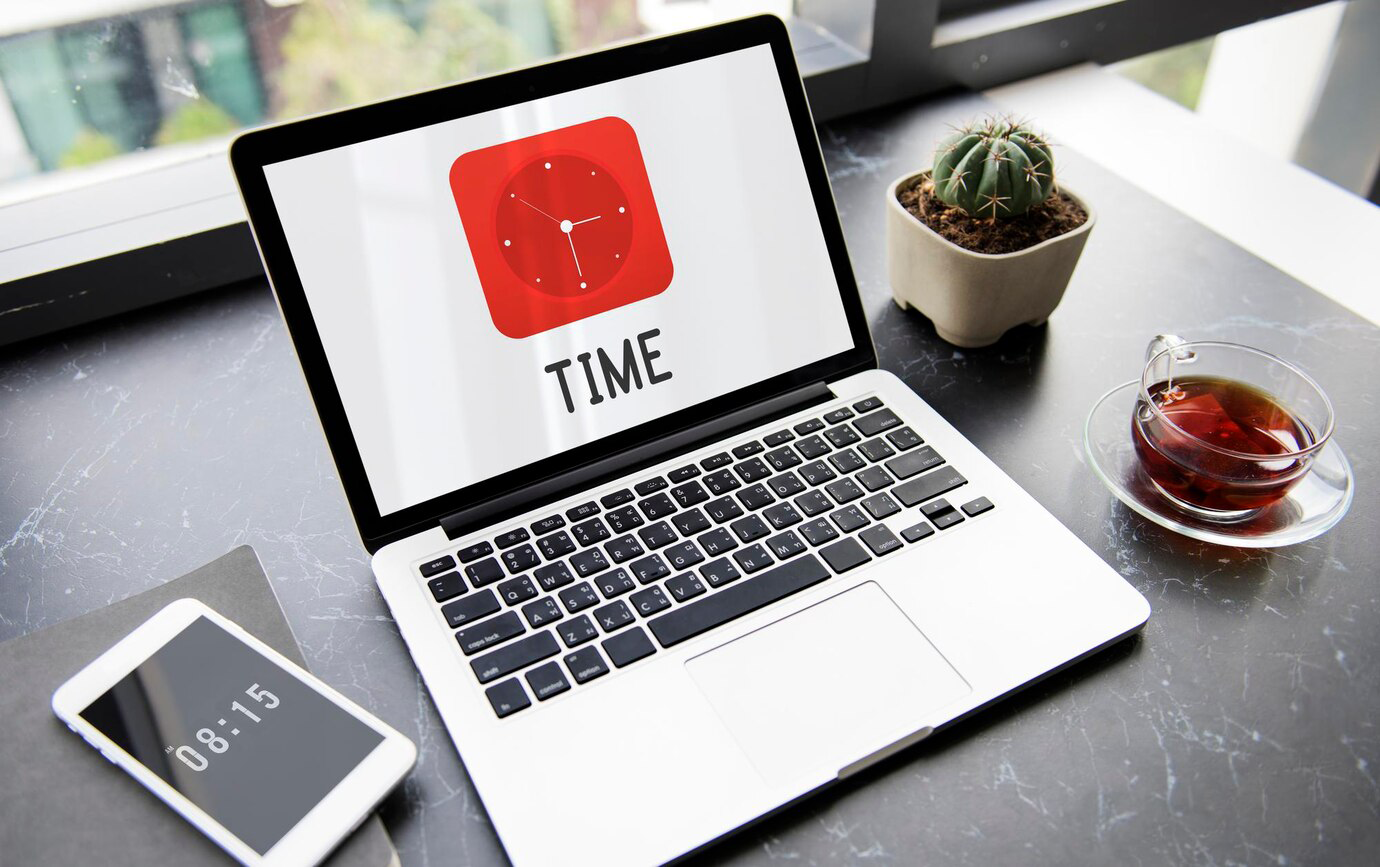
How Digital Detoxing Can Improve Your Mental Quality
In today’s tech world, our phones consistently buzz with notifications, emails, and social media updates. Digital connectivity is convenient. However, too much screen time can harm our mental clarity and well-being. Reducing screen time and enjoying the benefits of a digital detox can boost focus, productivity, and mental health. This guide looks at why digital detoxing matters. It shows how taking breaks from screens can help you focus better daily.
Why Digital Detoxing Matters

A digital detox means taking a break from your devices. This helps restore mental balance and lower stress. Too much screen time can overwhelm people. Often causing shorter attention spans, sleep problems, and increased anxiety. By practising a digital detox, you can regain control of your mental space, and experience improved focus.
Quick Guide: Digital Detox for Better Mental Health
- What Is a Digital Detox?
Taking intentional breaks from screens to reduce stress and mental fatigue. - Why It Matters
Too much screen time affects sleep, focus, and emotional health. - Key Benefits
Better sleep, improved productivity, reduced anxiety, stronger social connections. - Where to Start
Set screen time limits, create tech-free zones, try weekend detoxes, and engage in offline hobbies. - Long-Term Impact
Boosted concentration, deeper creativity, and a calmer, more mindful life.
Pro Tip
Treat screen-free time as self-care, not a punishment. Replace scrolling with something joyful—like walking in nature, reading a book, or simply doing nothing. That space is where clarity lives.
Important
Digital detoxing isn’t about cutting out all tech forever. It’s about finding a healthier balance. Even small changes, like limiting social media in the morning, can lead to big shifts in your mental clarity.
The Effects of Excessive Screen Time
- Reduced Attention Span: Constant notifications and multitasking hinder deep concentration.
- Sleep Disturbances: Exposure to blue light from screens interferes with melatonin production.
- Rise in stress and anxiety: When we compare ourselves on social media. Also, too much information can lead to mental fatigue.
- Reduced Productivity: Distractions from digital devices hinder the completion of tasks.
- Eye Strain and Physical Discomfort: Staring at screens for too long can cause strain, headaches, and bad posture.
Pro Tip: Setting daily screen limits is a simple way to gradually reduce screen time without feeling disconnected.
Digital Detox Benefits for Mental Clarity
Cutting down on digital dependency offers many benefits. You’ll see clearer thinking and improved emotional health.
1. Enhanced Focus and Productivity
Excessive screen exposure scatters attention and makes it challenging to stay on task. A digital detox allows for deeper concentration and focus improvement by minimising distractions.
- Helps prioritise tasks without interruptions.
- Encourages deep work, leading to higher-quality results.
- Increases efficiency by reducing time spent on unnecessary scrolling.
Pro Tip: Set specific work hours free from digital distractions to enhance productivity.
2. Better Sleep Quality
Limiting screen time before bed helps sleep cycles, leading to better, more restful nights. This is crucial for cognitive function and overall brain health.
- Reduces blue light exposure, allowing melatonin production to function correctly.
- Encourages relaxation before bedtime, improving sleep onset and duration.
- Reduces anxiety at night caused by overstimulation from screens.
Pro Tip: Avoid screens at least an hour before bed and switch to reading or meditation instead.
3. Reduced Stress and Anxiety
Taking breaks from social media and news can help reduce information overload, which can make you feel more present and mindful.
- Reduces constant pressure to stay updated with every notification.
- Encourages mindful living and lowers social-comparison stress.
- Allows for real-world interactions that boost emotional well-being.
Pro Tip: Swap your morning social media scroll for a quick walk or journaling. This change can help you start the day stress-free.
4. Improved Social Connections
Spending less time on screens fosters meaningful face-to-face interactions, strengthening personal relationships.
- Encourages active listening and deeper conversations.
- Helps in building stronger relationships by being present.
- Creates opportunities for engaging in activities that don’t rely on screens.
Pro Tip: Initiate phone-free meals with family and friends to prioritise real-life connections.
5. Increased Creativity
Reducing digital distractions creates space for new ideas, problem-solving, and self-reflection.
- Encourages boredom, which has been linked to enhanced creativity.
- Allows time for hobbies such as drawing, writing, or playing an instrument.
- Reduces reliance on instant digital entertainment, fostering imagination.
Pro Tip: Keep a notepad handy to jot down creative ideas that arise during screen-free moments.
How to Reduce Screen Time successfully

If you’re wondering how to successfully reduce screen time, start with small, manageable changes.
1. Setting Screen Time Limits
Use built-in digital wellness tools on your phone to track and limit usage. Apps like Screen Time (iOS) and Digital Wellbeing (Android) help manage time spent on devices.
- Set daily limits for social media and entertainment apps.
- Use grayscale mode to make phone screens less engaging.
- Schedule screen-free hours, such as early mornings and evenings.
Pro Tip: Begin by reducing screen time to 30 minutes each day, then gradually increase the limit.
2. Establish Tech-Free Zones
Start at home by creating screen-free spaces to encourage mindful interactions and relaxation.
- Keep devices out of bedrooms to promote better sleep hygiene.
- Imply no-phone rules during meals to enhance conversations.
- Set up a dedicated reading or relaxation space without screens.
Pro Tip: Charge your phone outside the bedroom to prevent late-night scrolling.
3. Replace Screen Time with Offline Activities
Engage in hobbies that don’t need digital devices, such as:
- Reading a physical copy of a book
- Practicing meditation
- Exercising or spending time in nature.
- Cooking new recipes without digital distractions.
- Engaging in board games or puzzles with family.
Pro Tip: Find a new hobby that excites you and commit to spending time on it daily.
4. Schedule Regular Digital Detox Periods
Commit to screen-free hours or days to reset your mind and experience sustained focus improvement.
- Take a break from screens on weekends or vacations.
- Participate in a 24-hour digital detox challenge.
- Encourage family members or friends to join you on a screen-free day.
Pro Tip: Planning outdoor activities will make digital detoxing enjoyable.
5. Disable Non-Essential Notifications
Turn off unwanted alerts to minimise distractions and reduce the urge to check your phone frequently.
- Customise app notifications to only receive important updates.
- Mute group chats that frequently disrupt focus.
- Set up email auto-responses to reduce the pressure of instant replies.
Pro Tip: Designate specific times to check messages rather than responding immediately.
The Link Between Digital Detox and Focus Improvement
Reducing screen exposure has a direct impact on cognitive function and attention span. Studies show that using devices too much leads to mental clutter. This makes it difficult to remember things and stay focused on tasks. Taking time away from screens allows your brain to reset, leading to:
- Sharper concentration and reduced mental fog.
- Better problem-solving abilities by improving critical thinking skills.
- Increased efficiency in daily activities by eliminating distractions.
- More meaningful interactions by improving emotional intelligence and communication skills.
Pro Tip: Try the 20 rule. Every 20 minutes, take a 20-second break. Look at something placed 20 feet away. It helps reduce eye strain and boosts your focus.
5 Frequently Asked Questions (FAQs)
1. How long should a digital detox last to be effective?
Even 30 minutes to 2 hours of screen-free time per day can make a noticeable difference. For deeper impact, try a full 24-hour detox once a week.
2. Is digital detoxing realistic if I work online?
Yes! You can schedule screen breaks, disable non-work notifications, and set clear tech boundaries during non-work hours.
3. What are the signs I need a digital detox?
Feeling mentally foggy, irritable, anxious, or unable to focus are key indicators. Trouble sleeping and compulsive phone checking are also red flags.
4. What if I feel disconnected during a detox?
That’s normal at first. The initial discomfort often gives way to clarity, peace, and presence. Let others know you’re unplugging to set expectations.
5. Can digital detoxing help with burnout?
Absolutely. Taking breaks from tech helps recharge your mental battery, lowers stress hormones, and creates space to rest and recover.
To sum up.

A digital detox in your routine improves mental clarity, focus, and well-being. You can regain control of your attention span by reducing the amount of time you spend on screens. Embrace the benefits of a digital detox and commit to improving your focus.
Challenge Yourself: Try a weekend digital detox. Take small steps and see how it affects your mood and productivity.
Have you tried a digital detox? Share your experiences in the comments below!


